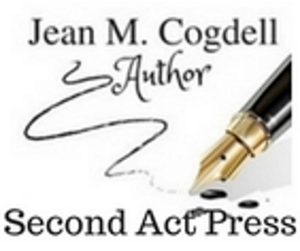Do you need to convert a story to the written word?
Tried and failed? Why didn’t your story didn’t convert?
I bet at some time in your life, you’ve enjoyed telling a good yarn. Whether it’s around a campfire, the bed of a toddler, or long-winded joke with coworkers. The ability to tell a good story doesn’t always make a good writer.
When my children were very small, I would make up stories to distract them. I’d let them contribute by adding characters. When a long walk became boring or tiring for there little legs, the walk became a safari searching for animals behind trees and tall weeds. Long car drives became guessing games that could evolve into a story. They never wondered why a giraffe was eating a neighbor’s yard eating leaves. They never questioned that lions weren’t native to the USA.
They never questioned that lions weren’t native to the USA. 
Those were special moments when they listened in rapt awe to everything I said, too bad those years were short.
Why does a story not automatically translate with ease on to the written page?

I’m an animated talker. I can’t talk without my hands much less tell a good story without hand gestures, facial gyrations or even moving about. My voice rising with the action and softens with the tension. This makes it easy to convey to the listener what happened in the story.
However, all of that movement isn’t easy to put into words without exhausting the reader and losing their interest.
After reading a great article 6 Key Differences Between Storytelling and Writing by Gordon Long a few things about writing clicked into place for me.
What clicked?
- Storytellers are performers.
- We pace, wave, laugh and do all kind of gestures when telling a story.
- It’s called telling a story for a reason.
- Telling rather than showing doesn’t translate well. Readers what to see the action.
- A storyteller peppers the story with adverbs. And we writers know all about adverbs.
- A storyteller head hops and it works because he can act out each character. Head hopping is harder for a writer.
- A writer must be more direct with dialog.
- Unlike a writer, the storyteller is stuck with chronological order.
Most of all, Gordon Long points out that a storyteller is allowed to tell, a writer must show.
Be sure and click on his link and read his in-depth post to improve your writing.
6 Key Differences Between Storytelling and Writing by Gordon Long
Okay, tell me what you think.
Are you a better storyteller than a writer?
Does any of Mr. Long’s tips resonate with you?
PLEASE TAKE ANOTHER MINUTE AND LOOK ME UP ON SOCIAL MEDIA BY CLICKING ON THE LINKS BELOW.
AND STOP BY JEAN’S WRITING ANYTIME, I’LL LEAVE A LIGHT ON. 

Facebook, Twitter, Amazon, Pinterest, Stumbleupon


Reblogged this on Anna Dobritt — Author.
LikeLiked by 1 person
Reblogged this on Author Don Massenzio and commented:
Check out this post from Jean’s Writing blog that tells us How to unlock the Writer hiding in a Storyteller
LikeLiked by 1 person
Thanks Don
LikeLiked by 1 person
You’re welcome.
LikeLiked by 1 person
Reblogged this on Kim's Author Support Blog.
LikeLiked by 1 person
Thanks for the RB Kim
LikeLiked by 1 person
Very interesting, Jean. Thank you!
LikeLiked by 1 person
Thanks Jennie
LikeLiked by 1 person
You’re welcome, Jean.
LikeLiked by 1 person
I agree, taking stories or events and writing about them is difficult and takes a skilled writer to pull it off correctly. I’m learning, but I’ve found using dialogue sometimes can bridge the gaps and allows the characters to tell the story.
LikeLiked by 1 person
I agree, dialogue is the only way to make it work.
LikeLike